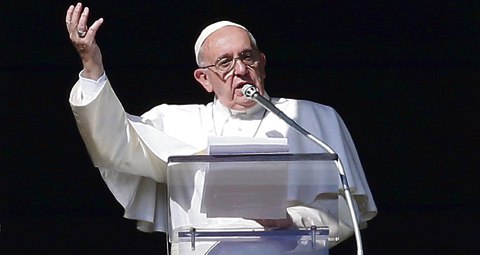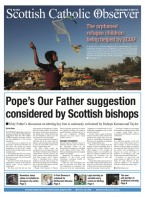BY Daniel Harkins | December 8 | ![]() 0 COMMENTS
0 COMMENTS ![]() print
print

A visit that will leave a lasting impression
SCO deputy editor DANIEL HARKINS reports from Bangladesh on the legacy of the Pope’s visit
One of the key organisers of Pope Francis’ visit to Bangladesh has said that the Holy Father made the right decision in holding off on using the word Rohingya until he left Myanmar.
Benedict Alo D’Rozario, director of Caritas Bangladesh until 2016 (left), told the SCO that Pope Francis’ visit will have made a concrete difference to the lives of the refugees. The Pope was in Bangladesh from December 2-3.
“I think the Holy Father did the right thing,” Dr D’Rozario said. “He was respectful to the Bishops’ Conference of Myanmar, but when he was in Bangladesh, he not only mentioned the Rohingya, he met them and had a photo with them. He also thanked the Bangladeshi people for opening their hearts to accept the people coming across the border.”
Bangladesh is a country of 163 million people with just 600,000 Christians. Dr D’Rozario said the Holy Father’s visit, the first Papal visit since 1987, was well-received in the majority Muslim country. It came at a time of increased tension over the Rohingya refugees, who have been fleeing ethic cleansing in Myanmar.
The Scottish Catholic International Aid Fund (SCIAF) have sent more than £100,000 to the country to aid its sister agency Caritas Bangladesh in providing support for the refugees. SCIAF director Alistair Dutton is currently in Cox’s Bazar visiting the refugee camps in Bangladesh. Speaking on the plane to the Bangladeshi city, Mr Dutton said: “I’m horrified by what’s happening to the Rohingya people. I’m here to see the work of Caritas Bangladesh and how the generosity of the people of Scotland has been put to good use to provide essential services.”
Pope Francis’s meeting with Rohingya refugees was hailed as a success by Dr D’Rozario.
“He is a living saint,” he said about the Holy Father, adding that the Pope was invited to the country due to his concern for ‘Christian communities on the peripheries.’
“He speaks for the rights of the downtrodden and the excluded. The people of Bangladesh were very inspired by the Pope, but it was also an opportunity for him to learn about peaceful co-existence in our multi-religious country.”











